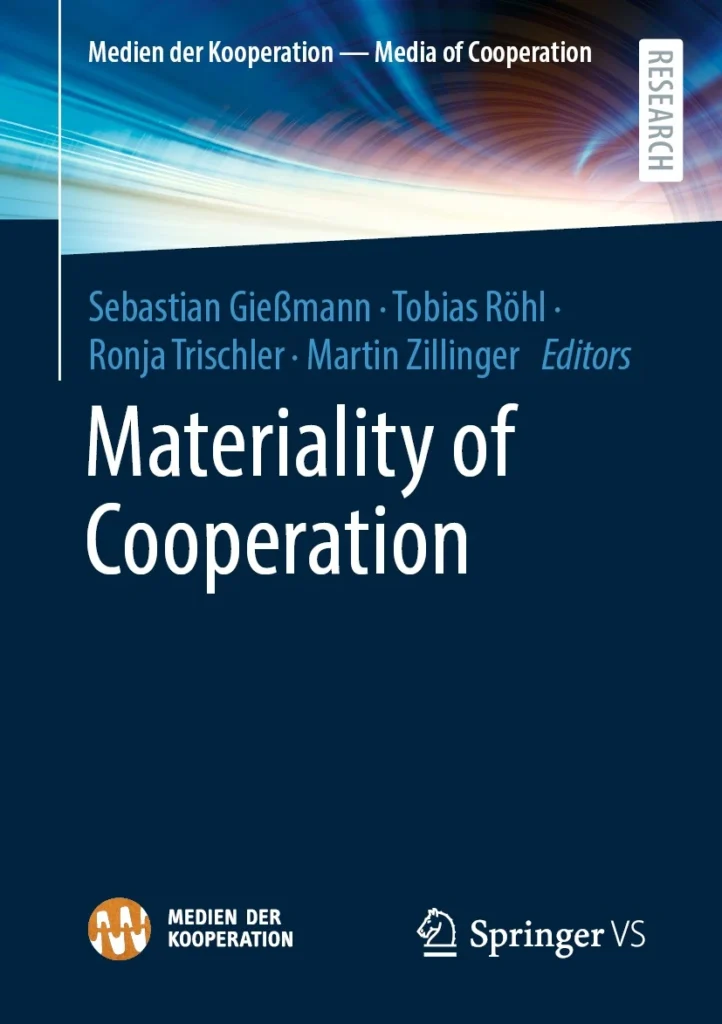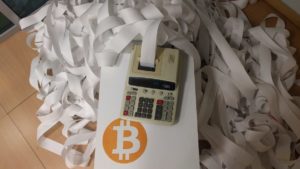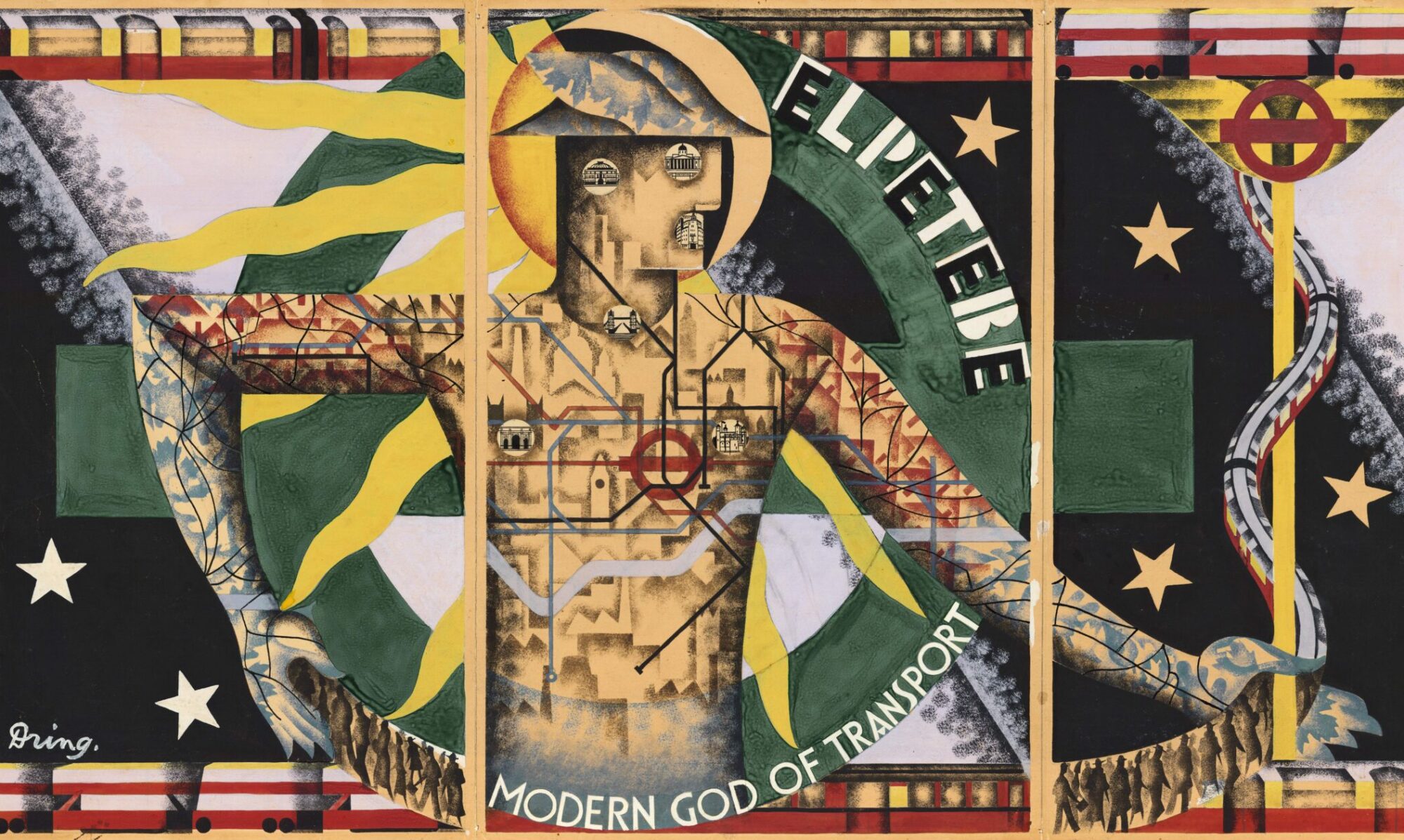I am happy to give a keynote at this conference of the Research Training Group “The Literary and Epistemic History of Small Forms”. It is called Infrastructures and/as Environments: Practices and Ecologies of Circulation. Feel free to join us and think collectively about “Small Forms in Circulation” at Humboldt University on November 28-30, 2024.
Materiality of Cooperation

The volume investigates the socio-material dimension and media practices of cooperation – before, during and beyond situations. Cooperation is understood as reciprocal interplay operating with or without consensus, in co-presence or absence of the involved actors in distributed situations. Artefacts, bodies, texts and infrastructures are the media that make cooperation possible. They enable and configure reciprocal accomplishments – and are themselves created through media practices in cooperative situations.
Pre-Face
Materiality of Cooperation—An Introduction
Sebastian Gießmann, Tobias Röhl, Ronja Trischler
Before the Situation
Eben noch auf Twitter
Medien sind der Maßstab aller Praxis.
— Sebastian Gießmann (@sebgiessmann) September 23, 2020
Digital Network Technologies between Specialization and Generalization
![Tim Berners-Lee demonstrates the World Wide Web to delegates at the Hypertext 1991 conference in San Antonio, Texas [CERN-IT-9112021-01]](https://netzeundnetzwerke.de/wp-content/uploads/2020/02/berners_lee_san_antonio_1991_FARBE.png)
Based on historical case studies focused on media and data practices, the project reconstructs the co-operative creation of networked media since 1989. From a media-historical perspective, it aims to provide a contribution to the European and transatlantic history of the Internet and the World Wide Web. From a media-theoretical perspective, the project aims to develop and specify a concept of digitality that takes into account its cooperative emergence, its infrastructural maintenance, universalization, and its specific publics.
We thereby focus on the constitutive role of a) interchangeability of representations and the growth of digital systems, b) cooperative production of interoperability and modularity, and c) elementary practices of reading, writing and algorithmic control. The three work packages of the project explore
- the constitution of the World Wide Web via its situated work constitution (Gießmann, Schüttpelz, Taha, Volmar),
- the development of intranets using the example of German corporate networks (Taha) and
- the emergence and spread of IP-based real-time communication via instant messaging (Volmar).
We assume that the establishment of the Internet and especially the World Wide Web as a public general-purpose infrastructure has lead to a remediation of cooperative practices of local working contexts. The project therefore therefore reconstructs the emergence and proliferation of web applications as a software- and data-oriented infrastructural history of cooperative media. We focus on the mutual production of cooperative conditions from collective, locally limited as well as translocally distributed work contexts and the corresponding situated data practices and arrangements (such as format usage, user administration, file sharing, collaborative processing of files, programming, error correction, patenting, standardization, etc.).
We are particularly interested in the interactions between work practices and the specific requirements for cooperation they produce, and in the materializations and affordances of digital micro-practices, through which cooperative conditions are ultimately realized in the form of digitally networked applications. We analyze these dynamics before the background of a longue durée of bureaucratic and administrative processes. These form the underlying socio-technical conditions that determine the materiality of cooperative computing, networking and data processing.
This research project is a part of the Collaborative Research Center „Media of Cooperation“ at Siegen University. Feel free to contact us anytime! Up to date publications can be found at our Media of Cooperation homepage.
Principal Investigators: Dr. Sebastian Gießmann | Prof. Dr. Erhard Schüttpelz
Researchers: Dipl. Medienwirtin Nadine Taha | Dr. Axel Volmar
Comenius Visiting Professor: Thomas Haigh
Mercator Fellow: Valérie Schafer
Blockchains in Action
 How does a distributed ledger become a medium? Why do people count on blockchain as a future technology? Our research project does not answer these questions on an abstract level. We rather aim to explore the development and operating of blockchain infrastructure on site. Initially, we conduct interviews with stakeholders working on applications for payment systems and the Internet of Things.
How does a distributed ledger become a medium? Why do people count on blockchain as a future technology? Our research project does not answer these questions on an abstract level. We rather aim to explore the development and operating of blockchain infrastructure on site. Initially, we conduct interviews with stakeholders working on applications for payment systems and the Internet of Things.Blockchains in Action assumes that development and transformation processes can be observed in local material practices of cooperation. We understand blockchains as infrastructural and public media. Their capacities for mediation only become observable in practice, which we approach through a combination of ethnography and media theory.
You are working on a blockchain-based project and want to get into conversation with us? We’d be glad to! Please contact us at sebastian.giessmann@uni-siegen.de and ronja.trischler@uni-siegen.de or via Twitter: @blockchainsIA.
Starting grant at the CRC “Media of Cooperation”,
Siegen University, 2018–2019

